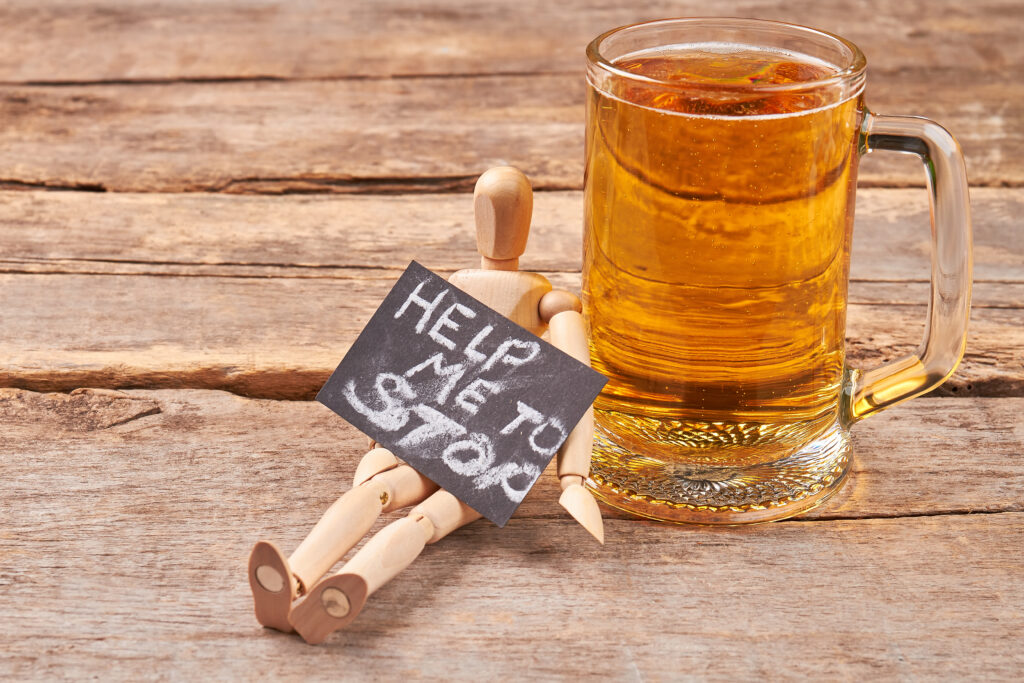We offer medical detox and multiple addiction treatment options in our
luxury treatment centres in Port Hope, Cobourg, and Ottawa.
Alcohol Poisoning Guide: Signs, Causes, and Treatment
Enjoying more than a few glasses of alcohol will typically leave you with a hangover, which you’ll get over with rest and a few home remedies. However, consuming large amounts of beer, wine, or liquor within a short period can cause alcohol poisoning, a dangerous situation that can lead to coma or death. It can also happen when a person ingests household items containing alcohol. Alcohol poisoning occurs due to a high concentration of alcohol in the blood, making the body unable to function correctly. It is a medical emergency that requires urgent treatment. CCFA explains alcohol poisoning symptoms and how to treat alcohol poisoning at home or elsewhere.
Key Takeaways
- Alcohol poisoning occurs due to too much alcohol in the body that becomes toxic and causes areas of the brain to shut down.
- Household items containing alcohol may cause alcohol poisoning if ingested.
- Alcohol poisoning is a severe condition that requires emergency medical attention.
- Alcohol poisoning could occur after a heavy drinking bout, but it may also point to an underlying problem with alcohol abuse.
Alcohol Poisoning: What is it?

Alcohol poisoning is when a person has so much alcohol in their blood that it becomes toxic, and areas of the brain responsible for vital functions begin to shut down. Blood alcohol concentration (BAC) measures the percentage of alcohol in the bloodstream. It is measured in grams per 100mL of blood, so a BAC of 0.08 means that your blood is 0.08% alcohol by volume. A BAC of 0.31 to 0.45 is dangerous and puts a person at risk of alcohol poisoning.
So, how do you get alcohol poisoning? Alcohol poisoning occurs due to binge drinking within a relatively short time frame. The condition is also known as alcohol overdose. When you drink, your liver filters the toxic metabolic products of alcohol and prevents them from getting into your bloodstream. However, drinking so much within a short period can overwhelm the liver and prevent it from being able to detoxify the blood. How much a person needs to drink to have alcohol poisoning depends on personal factors such as age, gender, medications taken, quantity of food eaten, drinking speed, and alcohol tolerance level.
If you suspect someone around you has alcohol poisoning, it’s vital to call for emergency help immediately. Alcohol abuse and addiction is a complex condition that requires professional intervention. The Canadian Centre for Addictions offers treatment for alcohol abuse and addiction in Ontario.
Signs and Symptoms of Alcohol Poisoning
The signs and symptoms of alcohol poisoning start mild and grow worse as BAC increases. A person’s BAC can continue to rise for over 30 minutes after they stop drinking, resulting in worsening symptoms. These symptoms include:
- Poor coordination or stumbling
- Bluish or cold, clammy skin, especially around the fingernails and lips
- Slurred speech
- Severe confusion
- Strong alcohol smell
- Vomiting
- Gag reflex depression
- Trouble staying conscious or awake
- Hypothermia (low body temperature)
- Irregular heartbeat or pulse (10 seconds or more between breaths)
- Slowed breaths (less than eight breaths per minute)
Causes of Alcohol Poisoning
Alcohol poisoning occurs due to too much alcohol in the blood than the body can handle. Binge drinking is usually the culprit in alcohol poisoning cases. Household substances containing alcohol can also cause alcohol poisoning if consumed. Binge drinking is defined as consuming five or more drinks on a single occasion for men or four or more for women. Taking double these amounts on a single occasion is considered extreme binge drinking.
Who is at Risk of Alcohol Poisoning?
Risk factors for alcohol poisoning vary among individuals and are typically dependent on how they absorb and metabolize alcohol. Alcohol poisoning symptoms vs. drunk symptoms may be similar, but inebriated people still need to be watched so their consumption does not become dangerous. The risk factors for alcohol poisoning include:
- Gender
Men are more likely to binge drink and are more likely to experience alcohol poisoning or overdose.
- Age
Young or middle-aged adults are also likely to drink excessively, putting them at a higher risk of alcohol poisoning than other age groups.
- Body Size
A person’s height and weight affect how they absorb and metabolize alcohol. If you have a smaller body, you’ll experience the effects of alcohol faster than a larger person. Smaller individuals may experience alcohol toxicity from consuming the same amount of alcohol that would be normal for larger-bodied individuals.
- Alcohol Tolerance Level
People with high alcohol tolerance tend to drink more and are at a higher risk of having an alcohol overdose.
- Speed of Drinking
The faster you drink alcohol, the higher your BAC becomes, which can significantly increase your risk of alcohol poisoning.
- Quantity of Food Eaten
The more food there is in your stomach, the slower your body absorbs alcohol. Drinking on an empty stomach allows alcohol to enter the bloodstream quicker, increasing the risk of alcohol poisoning.
- Medications Taken
Taking alcohol with medications like Ritalin can prevent you from feeling the effects of alcohol, making you drink more and putting you at risk of toxicity. Drugs like benzodiazepines have a similar depressant effect as alcohol and can intensify their effects, leading to overdose, even with moderate amounts.
- Health Conditions
Health conditions like diabetes can increase a person’s risk of having alcohol poisoning.
What are Some Complications of Alcohol Poisoning?
In severe cases, alcohol intoxication and poisoning can lead to complications such as:
- Choking on one’s vomit
Alcohol depresses the gag reflex and can cause a person to choke on their vomit if they pass out.
- Severe Dehydration
Loss of fluids from vomiting can lead to severe dehydration, increased heart rate, and dangerously low blood pressure.
- Seizures
Loss of fluids and dehydration can also cause hypoglycemia, which can trigger seizures.
- Hypothermia
Alcohol causes vasodilation, which increases heat loss via radiation – this rapid loss of heat makes body temperature drop so much that it can cause cardiac failure.
- Asphyxiation
Alcohol poisoning can cause vomit to get into the lungs and interrupt breathing, leading to potentially life-threatening asphyxiation.
- Heart Complications
Alcohol poisoning can lead to irregular heartbeat or heart failure.
- Brain Damage
Alcohol poisoning may lead to irreversible brain damage.
- Coma and Death
A person with alcohol poisoning may go into a coma, which can be fatal if not treated immediately.
What to Do In Case of Alcohol Poisoning?

If you think someone around has alcohol poisoning, it’s crucial to help them get medical attention immediately. Even if you’re not sure whether they’re intoxicated enough to require emergency help, it’s safer to take the following steps:
- Call Emergency Services
Dial 911 or local emergency services immediately and wait until they arrive.
- Provide Information
Any information you can give the emergency responders could be helpful, especially if the individual is unconscious. If you can, provide details about the type and quantity of alcohol the person consumed and whether they were combining alcohol with other substances.
- Stay with Them
Stay with the person while waiting for emergency help. Alcohol poisoning affects the gag reflex, and the person may choke if they cannot breathe after vomiting. Don’t try to induce vomiting, but if they do, get them to lie down with their head to the side so they don’t choke. Have them sip some water and cover them with a warm blanket till help arrives.
Preventing Alcohol Poisoning
You can prevent alcohol poisoning in the following ways:
- Drink Moderately
Drink alcohol in moderation if you must. Alcohol use is widely accepted in many social settings for celebration or relaxation. A healthy amount of alcohol will not harm you. Healthy adult males should take no more than two drinks on a single occasion, while females should stick to one drink per occasion. Enjoy your drink slowly and avoid drinking games that pressure you to binge drink or rush your beverage.
- Avoid Drinking on an Empty Stomach
Eat before you consume any alcoholic beverage. Food slows the absorption of alcohol but may not prevent poisoning if you binge drink. Also, keep yourself hydrated by drinking enough water after every alcoholic drink.
- Avoid Combining Alcohol with Medications
Some prescription medications can be harmful when combined with alcohol. Your health conditions may also lower the threshold for alcohol poisoning. Please speak to your prescriber to know whether it’s safe to drink alcohol with the medications you’re on.
- Watch Your Drink
If in a public setting, ensure you know what you’re drinking. Avoid a drink if you’re unsure of the contents or think it’s been mixed with something else.
- Store Household Products Properly
If you have kids, ensure you store alcohol-containing products like mouthwashes, cosmetics, and drugs out of their reach.
- Educate Your Teens
If you have teens, it’s important to educate them on the dangers of reckless alcohol use. Teens who receive education about alcohol use from their parents are less likely to misuse alcohol.
- Get Counselling
If you have previously been a victim of alcohol poisoning, speaking with a counsellor can help avoid situations that can lead to binge drinking or alcohol poisoning in the future.
Treating Alcohol Poisoning
Alcohol poisoning is a severe medical condition that requires urgent medical intervention. Hospital staff often monitor patients until their blood alcohol concentration drops to safe levels. In severe cases, they may administer the following alcohol poisoning remedies:
- Intravenous Fluids
IV fluids treat dehydration and increase vitamin and blood sugar levels.
- Oxygen
If the patient has difficulty breathing, hospital staff will administer supplemental oxygen by inserting a cannula into the windpipe.
- Stomach Pumping
Stomach pumping involves using a nasogastric tube to rid the patient’s stomach of alcohol and other toxins. When the stomach is pumped, alcohol is expelled via the tube, preventing BAC from rising further.
- Blood Filtration
In some cases, dialysis may be initiated to filter alcohol from the blood. Patients who have become incontinent may also require a urinary catheter. Children who have ingested alcohol-containing household products may also need dialysis to speed up the removal of alcohol from their system.
When to Consult a Medical Professional

You should consult a medical professional if you notice any of the following signs after a heavy drinking bout:
- Slurred speech
- Confusion
- Feeling sick
- Difficulty walking or coordinating movement
- Slow or irregular breathing
- Loss of consciousness
- Having a fit or seizure
- Pale or blue-tinged skin
- Urinary or fecal incontinence
You may also need to consult a medical professional if you notice a pattern of alcohol use consistent with abuse or alcohol use disorder.
Some signs of alcohol use disorder include:
- Continued alcohol use in increasing amounts
- Trying and failing to stop using alcohol
- Having intense cravings to drink alcohol
- Spending a great deal of time drinking and recovering from the effects of alcohol
- Decreased productivity at work or school due to alcohol use
- Continued alcohol use despite negative consequences on one’s health
- Needing increased amounts to get the same alcohol effects – tolerance
- Becoming alcohol-dependent: unable to go about your daily activities without alcohol
- Experiencing withdrawal symptoms upon cessation or reduction of alcohol use
Conclusion
Alcohol poisoning is a serious condition, and the victim must get medical help immediately. While a heavy drinking bout can cause alcohol poisoning, severe alcohol poisoning could also indicate an underlying problem with alcohol abuse. If, after treatment, a person continues to use alcohol in ways that could be detrimental to their health, you may need to consider that they have an alcohol use disorder.
The Canadian Centre for Addictions offers alcohol addiction treatment in an environment that inspires lasting change. We help our clients understand their addictions and the healthier coping strategies available by engaging them in one-on-one counselling with certified counsellors, psychiatrists, and mental health professionals. Call 1-855-499-9446 to learn more about how we treat alcohol use disorder.
Frequently Asked Question
- Age
- Gender
- Medications taken
- Quantity of food eaten
- Drinking speed
- Alcohol tolerance level
- Loss of appetite
- Feeling unwell all the time
- Yellow skin or eyes (jaundice)
- Tenderness or pain around the liver area
- Muscle wasting and weight loss
- Irregular sleep patterns
- Shortness of breath
- Increased sensitivity to drugs
- Tremors
- Impotence and diminished libido
- Changes in the colour of your stool or urine
- Bruising easily
- Swelling in your arms or legs (edema)






